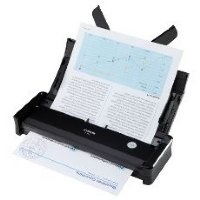HTC and Nokia shouldn’t be found liable of infringing Apple patents, the staff of the U.S. International Trade Commission recommended.
“Bloomberg” (http://macte.ch/HWdrZ) reports that a staff lawyer, Erin Joffre, disclosed the position at the start of an ITC trial in Washington Monday in which Apple is seeking to ban imports of mobile phones made by HTC that run Google’s Android operating system, as well as block some Nokia devices. The staff acts on behalf of the public as a third party in the case. Its recommendations aren’t binding.
In March 2010, Apple filed a lawsuit against HTC for infringing on 20 Apple patents related to the iPhone’s user interface, underlying architecture and hardware. The lawsuit was filed concurrently with the U.S. International Trade Commission (ITC) and in U.S. District Court in Delaware.
In June 2010 Apple expanded its lawsuit against HTC. In a complaint filed in the U.S. District Court for the District of Delaware, Apple accused HTC of infringing two additional patents and re-asserted its allegations of infringement of two others.
The case is the first patent dispute over phones using the Android operating system to reach this stage at the ITC, a quasi-judicial federal agency that arbitrates trade disputes, notes “Bloomberg.”
“What makes Apple products so successful is not just what you see, but what’s under the hood,” Apple lawyer Greg Arovas of Kirkland & Ellis in New York said in opening arguments.
“HTC is a smartphone innovator and pioneer in the smartphone sphere — they were there long before Apple,” HTC attorney Van Nest said. “The fundamental differences from the Apple patents represent choices made by HTC and Google.”
Apple also alleges that Espoo, Finland-based Nokia is infringing one patent that’s being asserted against HTC. The claim was spun off from a separate complaint against Nokia, which is scheduled to be decided by June 24, says “Bloomberg”
A Nokia lawyer, Pat Flinn of Alston & Bird in Atlanta, said Apple decided to “dredge up patents” to assert after it was approached by the “pioneers of mobile phones” for royalties, including Ericsson AB and Nokia, the article adds.
In November 2010, Nokia filed another lawsuit against Apple, in Federal District Court in Wisconsin, regarding five of Nokia’s patents. Nokia said those patents are infringed by the iPhone and iPad 3G and involve technology that improves speech and data transmission with new antenna configurations and positioning of data in applications.
“Nokia has been the leading developer of many key technologies in mobile devices” Nokia’s Patent Licensing General Manager Paul Melin said in a statement. “We have taken this step to protect the results of our pioneering development and to put an end to continued unlawful use of Nokia’s innovation.”
But that was merely the latest shot in the legal battle between Apple and Nokia. In February 2010 it was announced that Apple’s patent-infringement complaint seeking to block Nokia Oyj’s phone imports into the U.S. would be investigated by a U.S. trade agency.
In January 2010 Nokia filed a patent lawsuit against Apple, alleging that the company violates 10 of its US patents related mostly to smartphone technology. Also in January, Nokia filed a complaint with the United States International Trade Commission (ITC) alleging that Apple infringes Nokia patents in virtually all of its mobile phones, portable music players, and computers.
This followed an Nokia complaint filed in October Nokia against Apple with the Federal District Court in Delaware, alleging that Apple’s iPhone infringes Nokia patents for GSM, UMTS and wireless LAN (WLAN) standards. Basically, Nokia claimed that Apple wasn’t paying licensing fees for the wireless technologies it uses in the iPhone, iPhone 3G and iPhone 3GS.
On Dec. 11, Apple filed a countersuit claiming that Nokia is infringing 13 Apple patents. “Other companies must compete with us by inventing their own technologies, not just by stealing ours,” said Bruce Sewell, Apple’s General Counsel and senior vice president.
— Dennis Sellers




